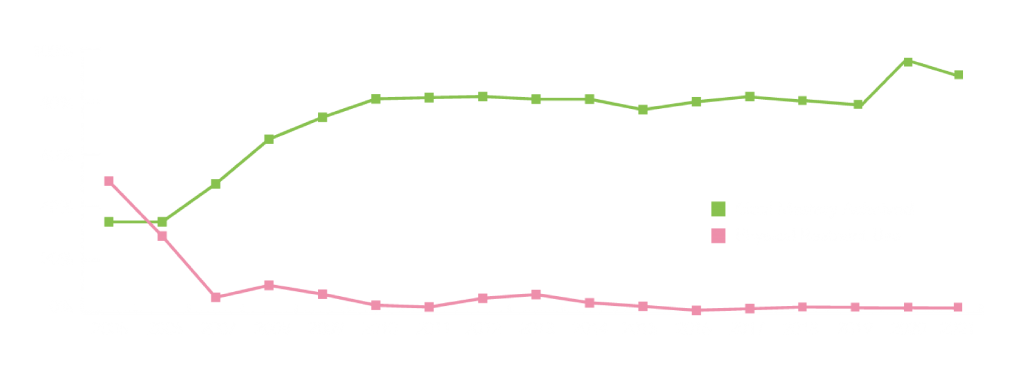Outcomes
While many organizations focus primarily on either behavioral health or intellectual disabilities, Grafton believes that serving both populations improves outcomes for everyone. Though these different client populations are served separately, our teams interact constantly, sharing the latest knowledge in their respective fields. Our clinical model is informed by both behaviorism and psychotherapeutic techniques.
Our more than six decades of clinical practice and record of successful outcomes support this integrated approach. We are gathering a robust database of evidence-based treatment goals and objectives that allows us to verify which approaches are most effective. Through this, we are able to assess the collective impact of our programs and services, as well as the individual impact on each of our clients.
Our rigorous data-driven decision-support function – which we call Goal Mastery™ – is integrated into treatment plans and reviewed at multidisciplinary team meetings. We use observable behavior data to drive clinical decision-making and to assess our impact. These data are available to families, managed care organizations, and others involved in a clients care. This collaboration helps us to provide the biggest impact in the shortest possible length of stay.
We also use a battery of standardized assessments to gauge skill-acquisition throughout care.
Goal Mastery
Grafton has successfully implemented a formal process to ensure that we measure progress in a meaningful way, with a shared definition of success. Since Grafton’s goal mastery™ initiative was implemented, we have consistently exceeded our target goal rate of 80% across the organization.
